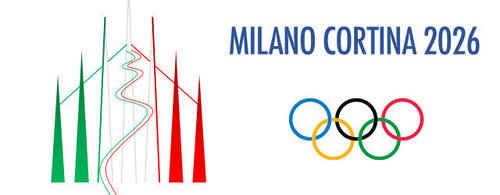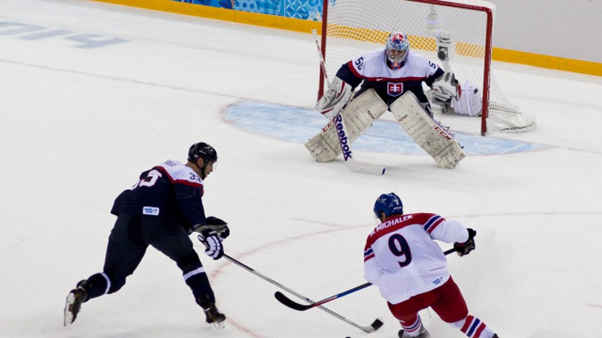
Ice hockey fans received a welcome boost recently with the exciting news National Hockey League players will return to the Winter Olympics in 2026. The stars of the NHL will make their first appearance at the world-famous competition since the 2014 Olympics in Sochi. And it’s not a moment too soon in the opinion of purists who can’t wait to see the game’s biggest and best players showcase their talents and push for a gold medal.
The NHL made the controversial decision six years ago not to permit its players to attend the Winter Olympics in Pyeongchang. The organization felt its men needed rest in 2018, and that was unanimously agreed. They then missed Beijing 2022 due to fears of COVID-19, opting to remain at home and abide by the strict pandemic rules imposed on professional sports. The plan was always to return to the fold in 2026, and it’s great news to see that confirmed by NHL officials. The timing allows players to focus on the start of the next Winter Olympics, which is now less than two years away.
Winter Olympics 2026 begins on 6 February, with the opening ceremony taking place at the iconic San Siro, home of Italian Serie A soccer giants Inter Milan and AC Milan. With the cream of the NHL crop now back in the running, the quest for gold in Milan and Cortina d’Empezzo begins. But which nation will strike gold at the fourth Winter Olympics staged in Italy? The battle is sure to be fierce, and you can have your say on the outcome at the top hockey sites now.
Winter Olympics 2026 info
There’s plenty of ice hockey to play between now and the next Winter Olympics. The stars of the show in 2026 may not be household names as the best of the next generation continue to build experience and sharpen their tools. Sports fans will follow this season’s NHL season with one eye on the next Games. The young and ambitious players of today who are just about to make an impact on the league will be the men who can make a difference in Italy.
What can you expect from the Winter Olympics 2026? Milan and Cortina d’Empezzo will host the party and invite the world to play. The Italian cities won the Olympic bid at the 134th session of the International Olympic Committee, beating off stiff competition from Swedish cities Stockholm and Are with a score of 47 votes to 34. It was a disappointment for the Swedes but an exciting time for sports fans in Italy.
Which team do you predict will win gold in Italy live on television? Sports fans use several tried-and-tested methods when attempting to call the result. They study the recent form, follow interviews with players and coaches, read expert predictions, and more. One of the
popular methods is following the sport’s most successful nations. But which teams have enjoyed the most gold medals at the Winter Olympics? Let’s dive into the stats.

Canada
Canada’s ice hockey legacy is nothing short of extraordinary, making it the undisputed powerhouse in Olympic history.
Canada’s men’s team has clinched numerous gold medals, with standout performances in the 2010 Vancouver Olympics, where Sidney Crosby’s iconic overtime goal secured victory, and the 2014 Sochi Olympics, where they dominated the competition. The women’s team has been equally dominant, often engaged in epic clashes with their arch-rivals, the United States.
Hockey in Canada is more than just a sport; it’s a cultural institution. From backyard rinks to professional leagues, the nation lives hockey. The “Hockey Canada” development program ensures a steady influx of talent, perpetuating the country’s legacy on the ice.
Legends like Wayne Gretzky, Mario Lemieux, and Hayley Wickenheiser have not only showcased their brilliance in the NHL but have also been instrumental in guiding Canada to Olympic gold. The depth of talent and the ability to produce clutch performances have solidified Canada’s status as the quintessential ice hockey nation.
Russia
The dissolution of the Soviet Union did not diminish Russia’s prowess on the ice; instead, it paved the way for a new chapter in their Olympic ice hockey legacy.
The Soviet Union’s dominance in the sport set the stage for Russia’s continued success. From the legendary Valeri Kharlamov to stars like Alexander Ovechkin, Russian players have consistently showcased skill and fight. While the men’s team has been a perennial contender, the women’s team has steadily grown into a force, securing podium finishes in recent editions.
Ice hockey enjoys immense popularity in Russia, with a robust development system and the Kontinental Hockey League (KHL) acting as a crucible for emerging talent. The sport’s cultural significance is evident in the reverence given to iconic players and the nation’s commitment to nurturing homegrown talent.
Ovechkin, Pavel Datsyuk, and Vladislav Tretiak are among the luminaries who have not only contributed to Russia’s ice hockey legacy but have also left a mark on the international stage. Their influence extends beyond the rink, inspiring a new generation of Russian players to pursue excellence in the sport.
United States
The United States has transitioned from the historic “Miracle on Ice” in 1980 to becoming a consistent force in Olympic ice hockey, both on the men’s and women’s fronts.
The men’s team’s improbable victory over the Soviet Union in 1980 remains an iconic moment in Olympic history. Since then, the U.S. has continued to make significant strides, with podium finishes and strong performances. The women’s team has emerged as a powerhouse, engaging in intense battles with Canada and showcasing the depth of talent in women’s ice hockey.
Ice hockey’s popularity has surged in the United States, with a growing number of youth leagues, collegiate programs, and the influence of the National Hockey League (NHL). The NCAA plays a pivotal role in developing talent, ensuring a steady stream of skilled players for the national teams.
Mike Eruzione, Patrick Kane, and Hilary Knight exemplify the caliber of players who have not only achieved success on American soil but have also been instrumental in raising the profile of U.S. ice hockey on the global stage. Their contributions have helped shape a new era of excellence for American teams.
